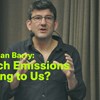konvention
Emily Jones: Afterlives: Edmund Burke, Benjamin Disraeli, and the Invention of Modern Conservatism
Venue: Institute for Futures Studies, Holländargatan 13 in Stockholm or online Research seminar with Emily Jones, Lecturer in Modern British History at the University of Manchester. Register here > Abs

Emily Jones: Edmund Burke, Benjamin Disraeli, and the Invention of Modern Conservatism
This paper will explore key findings drawn from my first monograph, Edmund Burke and the Invention of Modern Conservatism, 1830-1914: An Intellectual History (OUP, 2017) and my forthcoming book, One N
Retributivism and Public Opinion: On the Context Sensitivity of Desert
Criminal Law and Philosophy, Volume 12, Issue 1, pp 125-142. Abstract Retributivism may seem wholly uninterested in the fit between penal policy and public opinion, but on one rendition of the theory, h
Non-state actors in global climate governance: from Copenhagen to Paris and beyond.
Environmental Politics, Volume: 26(4):561-579. doi.org/10.1080/09644016.2017.1327485 Introduction ‘Together now!’ was the slogan used in the invitation to the Marrakesh Partnership for Global Climate Ac
Artificial Intelligence, Datafication and Exploring the Minimum Content of Nationality
The Statelessness & Citizenship Review, 6(1), 124-129 COMMENTARY: Introduction Identifying the minimum content of nationality (‘MCN’), the inalienable core elements or conditions of citizenship witho
Steven Vanderheiden: Sovereignty and sustainability: friends or foes?
Steven Vanderheiden, Associate Professor of Political Science and Environmental Studies, Center for Science and Technology Policy Research (CSTPR), University of Colorado at Boulder Abstract In this tal
Christian Barry: Which emissions belong to us?
Place:Holländargatan 13, Stockholm, or online.REGISTERAbstractTo address climate change we need to reduce net emissions globally. Most international processes and frameworks have involved seeking to g

Which emissions belong to us?
To address climate change we need to reduce net emissions globally. Most international processes and frameworks have involved seeking to get countries to make cuts to their emissions. Net zero has rec
Ahdistuksen vai innostuksen ilmasto? Ilmastoviestinnän ja -kasvatuksen keinoja ilmastoahdistuksesta selviytymiseen
In E. Pekkarinen, & T. Tuukkanen (Eds.), Lapsen oikeudet ja maapallon tulevaisuus. Lapsiasiavaltuutetun toimiston julkaisuja 2020:4. [A climate of anxiety or enthusiasm? Means of climate communicatio
Karin Bäckstrand: The Role of Non-state Actors in Global Climate Governance after COP22 in Marrakech
Professor in Environmental Social Science, Stockholm University ABSTRACTWhat is the roles of non-state actors, such as civil society, business, indigenous movements and cities, in global climate and th Conference of the Parties (COP15) in Copenhagen to COP22 in Marrakech, where Marrakech Global Climate Action was launched involving voluntary climate action commitments from more than 12 000 companies, investors, cities and regions, and civil society actors. Over this timeframe, we have seen a form of ‘hybrid multilateralism’ emerge, in which UN climate diplomacy blurs state and non-state participation in complex and intriguing ways with implications for the authority, legitimacy, and effectiveness of climate governance. This speaks, in different ways, to the transformed landscape of climate cooperation with a strengthened interface of multilateral climate diplomacy and non-state climate action and the potential roles, modes, and effects of non-state actors in the post-Paris period.








